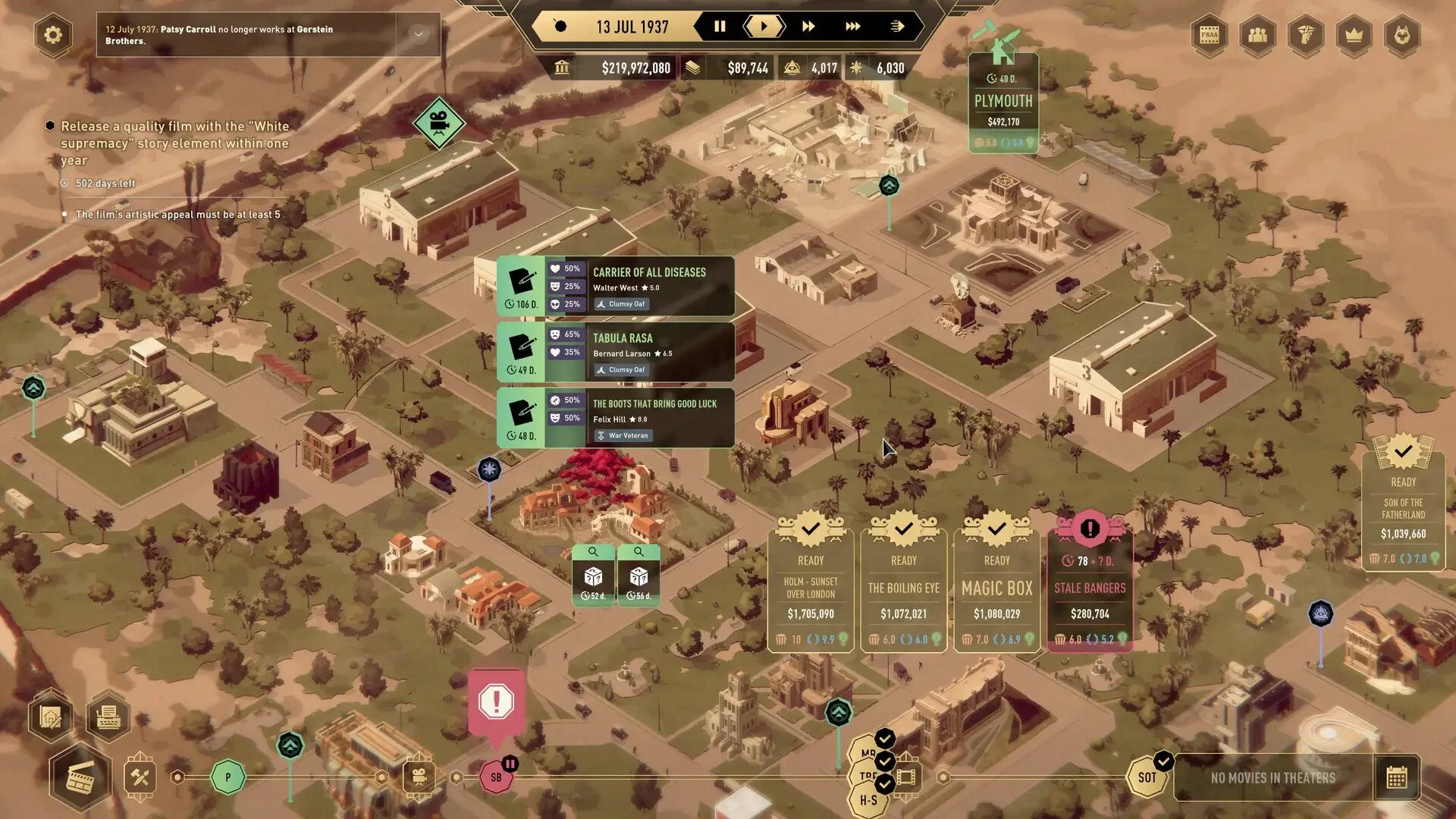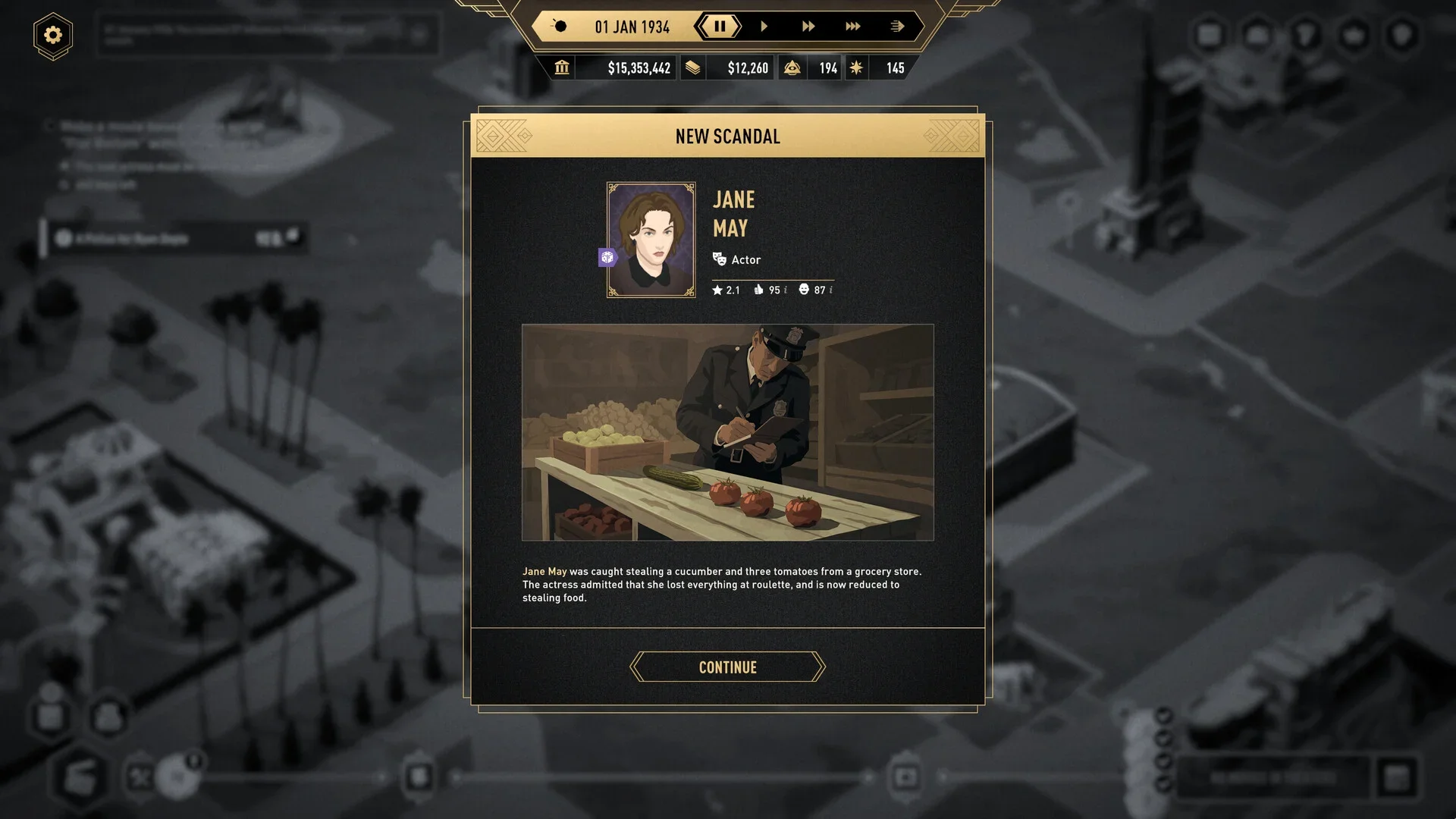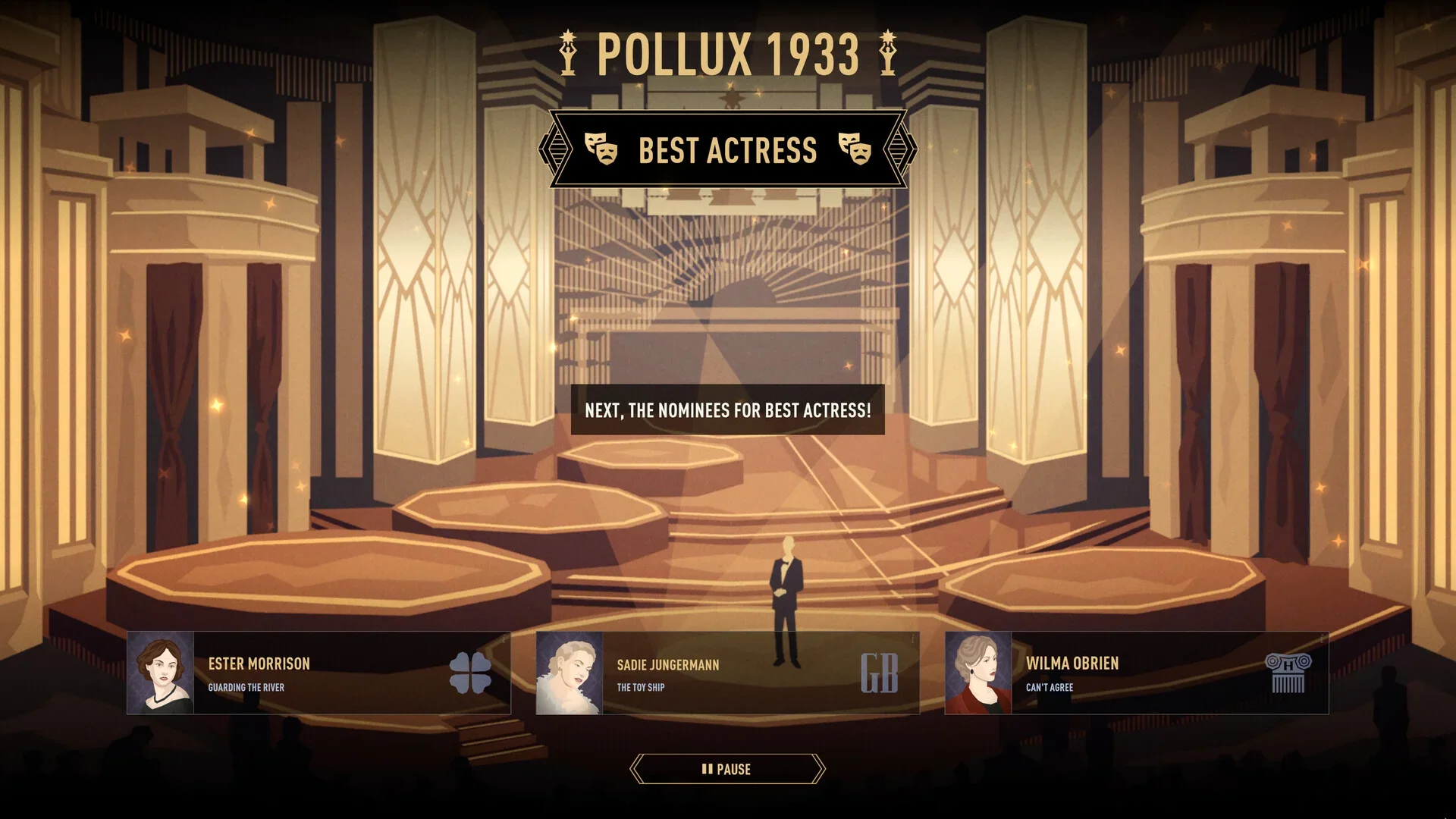Hollywood Animal Review: My Descent from Studio Mogul to Depraved Monster
I was promised the keys to the kingdom. A chance to build my own movie studio from the dirt up, to become a mogul, a kingmaker, a true Hollywood Animal. What they don't tell you is that sometimes, being an animal is the only way to survive.
This isn't some sanitized, cartoonish tycoon game where you worry about the color of the wallpaper and the placement of decorative bushes. The game tells you outright: "You're the boss, not the groundskeeper." It throws you into the deep end of the 1920s film industry, a cesspool of ambition, corruption, and fragile egos, and tells you to swim. After spending quite a few hours in this beautiful, infuriating, and utterly addictive simulator, I can confirm that I have, in fact, learned to swim. Mostly with sharks.
The Meat Grinder
The first few hours are a special kind of hell. The game hands you a pittance of cash, a handful of terrible, unskilled employees, and expects you to churn out cinematic masterpieces. My first three attempts at running a studio ended in swift, brutal bankruptcy. I’d take a script with a 9/10 rating, pour all my money into it, and watch in horror as my incompetent editors and composers turned it into a 2/10 turd that made less money than it cost to advertise.
The learning curve is a vertical wall with no handholds. The tutorial holds your hand just long enough to get you past Steam's two-hour refund window and then shoves you off a cliff. It doesn't explain that if you don't research marketing immediately, your studio is doomed. It doesn't tell you that employee happiness is a ticking time bomb that will sabotage your productions, or that the only way to make them happy is to research a building that lets you give them gifts, a process that takes an in-game year while your stars are threatening to walk. I learned everything the hard way: by going broke, over and over again.
The Sweet Poison of Success
But then, something clicks. You survive your first year. You release a film that doesn't just break even, but actually turns a profit. You finally research the right tech, hire a director who isn't a complete moron, and produce a certified hit. Suddenly, the money starts pouring in. You buy out every local cinema, ensuring your films have maximum reach for minimum cost. You feel like a god.
This is the game's insidious, addictive core. The process of making a film is detailed and engaging. You're not just clicking buttons; you're choosing genres and themes, assembling the perfect cast, and watching as your decisions translate into box office gold or a career-ending flop. When you finally craft a masterpiece and sweep the awards, the feeling of satisfaction is immense. It’s a high that makes all the preceding pain feel worth it. For a little while, at least.
The Devil on Your Shoulder
Here's where Hollywood Animal truly separates itself from the pack. Every business has a dark side, and this game doesn't just acknowledge it; it builds a whole damn playground in it. You're not just a studio head; you're a fixer, a monster, a necessary evil.
You can play by the rules, or you can stay on the mayor's good side with a well-placed bribe. You can give that troublesome screenwriter a raise, or you can dig up some dirt and remind him about that prostitute he strangled, a little problem you already made disappear for him. You can delay your film's release to avoid competing with a rival studio's blockbuster, or you can just ask your friends in the mafia to... clear the calendar for you. It's gloriously, delightfully dark. Choosing the lead for your Civil War epic is important, but figuring out how many ribs you need to break before he accepts the part is a whole different level of management simulation.
A Beautiful, Broken Mess
For all its brilliance, this game is still very much in Early Access, and it shows. It’s buggy. It crashes. I’ve had menus freeze, forcing a reload that cost me an hour of progress. The user interface, while stylish, is a mess of tiny icons and buried menus that makes simple tasks a chore. And for a game with so much potential for emergent stories, the scripted events repeat on every single playthrough, which kills the replayability.
The game is also plagued by some truly baffling balance issues. The employee happiness mechanic is a tedious, frustrating system of micromanagement. The research trees take an eternity to progress through, making it feel like you're stuck in the technological stone age for years. And police raids are an obnoxious, unskippable cutscene that happens constantly, forcing you into a repetitive mini-game of hiding your illegal goods.
The Verdict
I have a love-hate relationship with Hollywood Animal. It’s one of the most immersive and addictive management sims I have ever played. The atmosphere is perfect, the writing is sharp, and the freedom to be an absolute bastard is refreshingly honest. It's a game that respects your intelligence, for better and for worse. But it's also a deeply flawed, unbalanced, and buggy experience. It feels like a brilliant gem that's still caked in mud.
The recent "Stuff That Dreams Are Made Of" update is a perfect example of this. It's a massive overhaul that adds new systems and content, proving the developers are actively working to build something special. Unfortunately, it also seems to have completely broken the game's already precarious balance. What was once a tough but rewarding challenge now feels like a frustrating death spiral. The updates have seemingly railroaded players (including me in my playthroughs ) into a single, specific playstyle, punishing any deviation with almost certain bankruptcy. It’s a classic case of one step forward, two steps back.
The developers have a masterpiece on their hands if they can just polish it and find the fun again. In its current state, it’s a frustrating, often infuriating game that I absolutely cannot stop playing. Just make sure you save often. You’re going to need it.
Score: 7.4/10 The only game where "Break his legs" is a valid contract negotiation tactic.
We at NLM received a key for this game for free, this however didn't impact our review in any way.


